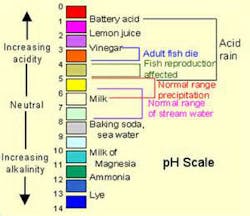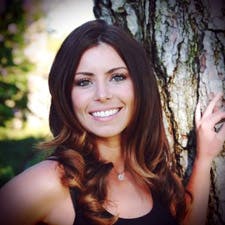What is an integrative hygienist?
An Integrative Hygienist is somebody who considers ALL possible approaches to a person’s overall health. Yes, we are dental hygienists, and in school we are taught to look only at the tooth, the whole tooth, and nothing but the tooth. However, anatomy shows us the mouth is attached to the body and physiology shows us the same blood that runs through our body provides the vitality for our teeth; thus proving to us the body’s health can affect the oral cavity and vise-versa. As I went throughout my dental hygiene career, I developed close relationships with my patients and wanted the best for them. As their loyal hygienist, I did my research in order to tell them the ingredients in their toothpaste or mouthwash they were using, and why it may or may not be good for them. That ignited my passion for a more holistic approach to dental hygiene and dentistry. I started to educate myself about natural toothpastes, mouthwashes, and fluoride. I took a closer look at the medications my patients were taking and how it was affecting their mouths. I began educating them about alternative ways to address their overall health. This became a big deal for me, and my patients trusted me enough to try my suggestions. I had great results with the majority of them and knew I was on to something good. A major mentor I started with and still have, along my journey, is Carol Vander Stoep, the author of The Mouth Matters book.(1) She was the first dental hygienist to actually discuss how important the oral-systemic connection is, by writing this book and addressing topics we have always questioned. I now am good friends with Carol and we have great conversations of our hopes regarding the future of hygiene.
I am someone who tries my best to be as healthy as possible and have always been interested in food--what is healthy, and what is not healthy, and why? I branched out and started to study nutrition, specifically the types of food that feed and repair the body’s cells. I found a lot of false information out there, so be careful. One reliable source I found is Dr. Weil.(2) Here are some of his simple tips regarding food: • Don't feed yourself in the same place you feed your car! • If your great grandmother would not recognize what you are about to place in your mouth, don't do it! • If the product has more than five ingredients, you do not need it. • If you would not put the substance on your skin, don't place it in your mouth! Pretty easy and makes sense right? Educating myself about foods led me to testing the pH of my patients’ saliva at their appointment and educating them on how the alkalinity and acidity affects their body and their teeth, especially my cancer or post-cancer patients. The information just gets more and more exciting because it is endless!
Throughout all of this, I have seen how alternative methods can change lives, yet the benefits of western medicine cannot be overlooked. Integrating the two is crucial and leaves us open-minded to all possibilities. Everyone is different and has individual requests, but joining the forces of east and west provides us with all the tools we need.References 1. www.mouthmattersbook.com. 2. www.drweil.com.
Timbrey Lind, RDH: Her job is her passion and when she is not working she enjoys adventures such as rock climbing, yoga, mountain biking, and paddle boarding. Her Lhasa Opso usually joins her! Timbrey currently resides in Thousand Oaks, Calif., and graduated dental hygiene school in 2008. To read more integrative hygiene and integrative medicine, click here and here.



